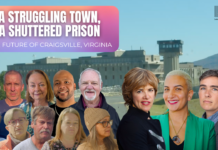Forty percent of those who get abortion services in the U.S. are African Americans. Would you know it from the media coverage of the Supreme Court’s reversal of Roe vs Wade? S. Mitra Kalita and Sara Lomax-Reese of URL Media join Laura for this month’s “Meet the BIPOC Press” to consider what has changed in the coverage — and the organizing — around reproductive justice in the years since Roe. Are abortion seekers of color still a sidebar in reporting or has journalism finally reached a tipping point on inclusion? What difference are BIPOC-owned-and-operated media making in this moment, to our understanding of what’s been lost, and to the debate over what is needed now? Our hosts are joined by Assemblymember Jessica González-Rojas, from Queens, NY, and La’Tasha D. Mayes, Democratic Nominee for the Pennsylvania Statehouse from Pittsburgh.
“Abortion is not about life. It is about power and control over our bodies.” – Jessica González-Rojas
“The strategy to protect abortion access in our nation was misguided. We were not protecting Roe to the degree that it needed and that while it provided basic constitutional protections it was always the floor for basic human rights . . . Black women, folks of color and poor abortion seekers have been living in a post-Roe world for years.” – La’Tasha D. Mayes
Guests
- Jessica González-Rojas: Assemblymember, District 34 in Queens, NY; Former Leader, National Latina Institute for Reproductive Justice
- S. Mitra Kalita (Co-Host): Co-Founder, URL Media
- Sara Lomax-Reese (Co-Host): Co-Founder, URL Media
- La’Tasha D. Mayes: Democratic nominee for Pennsylvania House of Representatives; Founder & Former CEO, New Voices for Reproductive Justice
Prefer to Listen?
Subscribe to our podcast to listen to this week’s episode on your favorite podcast platform.
Transcript
Want More Coverage?
Head to our Patreon for a list related episodes and articles. And check out our full Gender & Sexuality library on YouTube.
Accessibility
The Laura Flanders Show is committed to making our programming, website and social media as accessible as possible to everyone, including those with visual, hearing, cognitive and motor impairments. We’re constantly working towards improving the accessibility of our content to ensure we provide equal access to all. If you would like to request accessibility-related assistance, report any accessibility problems, or request any information in accessible alternative formats, please contact us.
















